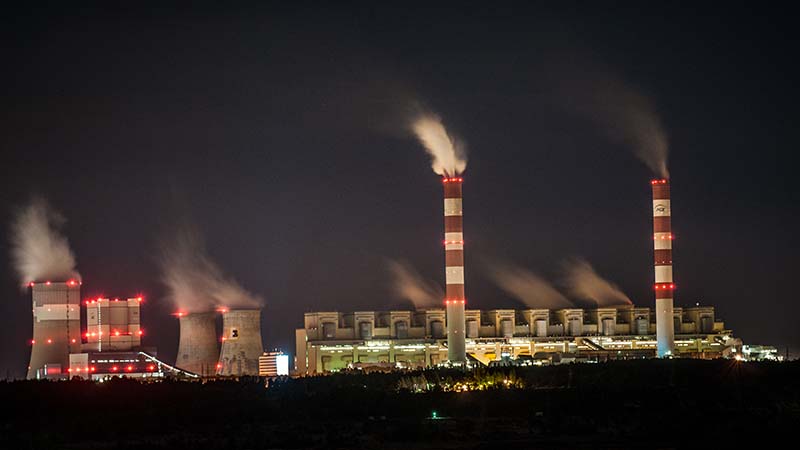Secret subsidies for fossil fuels will not be tolerated under EU state aid rules, the European Commission warned on Wednesday.
Eleven member states have or are planning to introduce “capacity mechanisms” to make sure there is enough electricity available to keep the lights on.
These must not be skewed towards coal or gas power plants, the competition directorate said in guidance published alongside the bloc’s clean energy package.
“Capacity mechanisms need to match a problem in the market and be open to all technologies and to operators from other EU countries,” said Commissioner Margarethe Vestager.
“They must not be backdoor subsidies for a specific technology, such as fossil fuels, or come at too high a price for electricity consumers.”
Brussels did not single out any national government. Some, like France, have had their schemes separately scrutinised and approved, subject to amendments.
The guidance appears to set a collision course with Poland, though, which is developing a scheme explicitly to support new power stations.
Energy minister Krzysztof Tchorzewski told a conference in May, as reported by Euractiv: “There is no energy safety or stability of supplies without conventional power generation. We can improve on emissions, but conventional generation will always have to be there.”
For Warsaw, “conventional” means coal, which accounted for 85% of electricity production in 2013. Sourcewatch lists 4GW worth of plants under construction and nearly 5GW more in the pipeline.
Tchorzewski said at least 7GW was needed in six years to avoid restrictions on consumption.
But after an 18-month inquiry, the Commission found that member states had been “insufficiently thorough” in assessing the need for more capacity.
Where there were justifiable security of supply concerns, it recommended reforming the market before considering extra measures.
Better grid connections and “interruptibility schemes” – paying consumers to switch off when electricity is scarce – might be more appropriate than new plant, the inquiry concluded.
The EU's clean energy package offers dull continuity. Isn't that refreshing? https://t.co/7vqJDTqIyo pic.twitter.com/OB8y8hGVKT
— Climate Home News (@ClimateHome) December 1, 2016
“Poland coming up is more or less inevitable now,” said Ken Huestebeck, state aid expert at environmental law NGO Client Earth. “We would also like to see a closer investigation of Poland, because of the relatively high share of coal in their energy mix.”
The clean energy package included an emissions limit on plants accessing capacity payments, effectively excluding new coal. By 2026, old power stations must also comply with the standard.
While it may take three years for that legislation to be officially adopted, Huestebeck told Climate Home there was a precedent for the Commission enforcing provisional rules.
And the Commission press release stated it would work with member states to bring their schemes – a number of which have “major shortcomings” – in line with the rules.
Ultimately, it can impose fines or order governments to demand beneficiaries repay the aid if it is allocated in an unlawful way.
Weekly briefing: Sign up for your essential climate politics update
